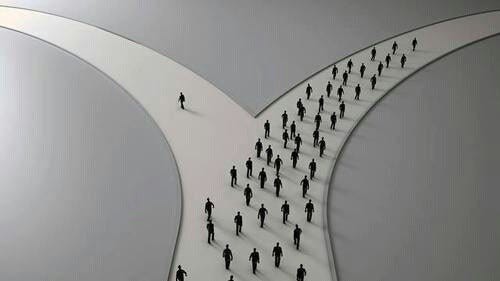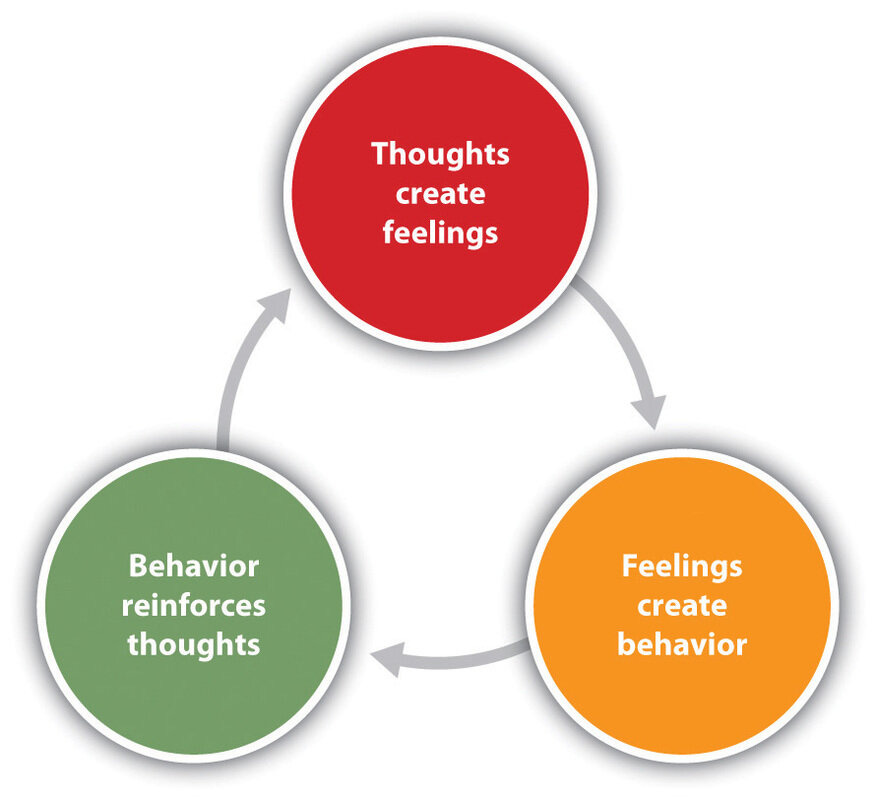“I didn’t have any black friends until I was 26.”
I’m not going to lie, my eyebrows did furrow, my lips did purse, and a “hmm” involuntarily escaped from my throat. I have suspicions, but if there is anything I’ve learned from being an ‘alternative’ ‘weird’ black girl, it is that I should give grace (up to a point). I’ve been judged for how I look and how I speak my whole life, so I hesitantly listened to the rest of the video.
Unfortunately, my facial expression does not change much once the video is over, and the space between my eyes and brows only continues to get smaller as I read the comments. My brows are so furrowed they are now knotted together, and my lips are so pursed they cover my nose as if to protect my nostrils from a bad smell. There’s a time and place to give grace; this TikTok video isn’t one of them, especially when the stench of anti-blackness is wafting from its comment section.
Anti-blackness amongst ‘othered’ black people
Those who declare they have no black friends never stop to consider what attributes they have that are genuinely off-putting for other black people to be around and how their words ‘other’ the exact same people they apparently wish to be in community with. Here’s a comment I saw in my common section: “I’m not like other black girls, I watch anime:( .” With love and light, when I read that, I heard the shrill strings of the world’s smallest violin. Accompanied by “I’m just not ghetto like most black girls with their wigs”, my eyes rolled so far up into my head I feared they would never come down. You see, these aren’t just mere proclamations of feeling othered, but also an admission of participating in and adhering to a cultural hierarchy.
To put it plainly, Black culture is low culture, and those who participate in it are viewed as below those who CHOOSE not to. Low culture, in sociological terms, is characterised as a form of popular culture that has mass appeal, consumed mainly by those in the middle and lower classes (Bru, 2012). Conversely, High culture appeals to a smaller subsection of the population, often characterised as refined, cultured, and educated elite people. High culture is not accessible to everyone. It is intended for a select few (Debnath 2019.) Herein lies the problem. The term "cultural capital" was coined by Pierre Bourdieu and Jean-Claude Passeron in 1977 to describe the cultural knowledge and social assets that make people appealing to those in power. There were several factors to consider, including education, manner of speech, style of dress, aesthetic preferences, and lifestyle. There are aspects of cultural capital that are bestowed at birth, and others that are acquired throughout a person's life. In addition to being long, painful, and alienating, the acquisition process is often determined by a person's proximity to a dominant culture (socially, ideologically, and geographically), which puts immigrants and individuals from different faiths, ethnicities, and educational backgrounds at a disadvantage. This is all without even mentioning the cultural erasure that takes place as a result (Olah 2023.) Living, working and existing in white spaces does not automatically condemn one to feel superiority over Black culture, but it does make them more susceptible to such ideologies. When Whitness itself is built on exclusion, it is no surprise that when entering a culture that is its antithesis, a sort of self-fragmentation occurs, alienation, as Bourdieu states. When you have been primed to see your own people as ‘uncouth’ or ‘ghetto’ or at worst beneath you, not only does it impede one’s chances of integrating into the community, it also blinds one to the mere possibility that someone such as yourself also exists. When you believe something as popular as anime is ‘obscure’, not only are you arrogant in thinking that you are the only one of you to ever exist, but you also condemn yourself to be othered. Liking obscure things should not deter you from Blackness as a whole; it should, in fact, inspire you. Being Black in itself is alternative. My friend Laura puts it perfectly in this TikTok:
Are you alternative in spite of your Blackness or are you existing in alternative ways inspired by Blackness?
What underlying beliefs do you hold about black people? Have you confronted them, let alone unpacked them? Do you understand how these thoughts, which then become actions, make other people not want to be around you? I’ve heard it all before: “I went to a white school”, “My parents moved me to a white area”, “I’m just different to other black people.” I, however, never hear any admission of the part they may have played in their own lack of black friends. As if it’s a fact carved into stone that they will never have friends of the same race. As if the cards they've been dealt have destined them to a fruitless, friendless eternity. The cards in your suit may not be optimal, but it doesn’t change the fact that you have complete control over whether you play them or not. Let’s talk agency.
Agency and accountability in being ‘othered’
To begin with, I am not speaking about factors that are out of the control of the othered black person, e.g. the school their parents sent them to, the area they grew up in. Unlike some of the intellectually lazy, bad-faith arguments made in my comments section may have you believe (“have you no compassion for bullied children?”), I am very compassionate when it comes to those who have been othered, especially in social settings. I, however, quite self-admittedly lack the same level of patience when it pertains to adults who refuse to take accountability for the role they play in their suffering. As an adult, the cards your parents have been playing in your stead your entire life are quite abruptly thrust into your hands at the age of 18, and you are magically supposed to know what to do with them. I get that. I empathise with that. But whether you like it or not, they're in your hands now, and no one is going to play them for you. If you want something to change in your life, you'll have to be the one to take action, unfortunately. That’s one of the quickest things I learned in therapy: the importance of accountability and agency. Taking accountability can be tough because it asks us to face uncomfortable truths. We find it hard to admit when we are wrong or hurt others, and we find it even harder to realise that some of our problems are self-inflicted. It's in our nature to protect our egos, so accountability can feel like it's a threat. However, avoiding accountability will only keep you stuck. Being accountable is a powerful step toward improving relationships.
Once you’ve taken accountability (for example, admitting some thoughts you have about black people may be internalised racism) the next would be utilising the agency you’ve been given. As a few people admitted in my comment section, they had never gone to (insert any black space) because they had assumed it wasn’t for them. This inaction in itself may be a result of a self-fulfilling prophecy, but more on that later. There’s really not much to say other than you can't complain about something you haven't tried to fix. I know it sounds cruel, but no one can go out and make friends for you. Especially if you are in places where there are not many Black folks, you’re going to have to go out of your way to find them actively. Do you think they will magically fall into your lap?
The self-fulfilling prophecy of the ‘othered’ black person
A lot of black people admitted they have avoided black spaces because of past trauma, resulting in low self-esteem, and do not for a second doubt that I understand where they are coming from. These thoughts that no one else will like us result in a negative feedback loop.
In Cognitive Behavioural therapy, your thoughts create your feelings, your feelings create your behaviour, and your behaviour reinforces that original thought. If we plug an example into this model, we can understand how ‘othered’ black people can end up in negative feedback loops:
Because of an experience I’ve had, I feel like Black people do not like me
Black people do not like me, so I am going to avoid Black spaces.
I do not have Black friends, therefore Black people do not like me.
Back to step 1.
While you are performing this loop, others are also observing it being played out. Ask yourself, “If someone is actively avoiding me, am I going out of my way to ask them why they don’t like me?” This is what other Black people are thinking. Why befriend someone who seems like they don’t like me? Or worse, believe they are better than me in the case of those who spout anti-black rhetoric. Can you see why your comments or actions may distance others? This loop is incredibly hard to break as it requires us to put ourselves in uncomfortable and, more so, vulnerable positions. Vulnerability is knowing you can be rejected, and putting yourself in that position is what makes you brave. It’s not brave to shield yourself from people, to protect a part of yourself that pines for community. It’s not that brave people do things, it’s the doing things that make you brave. It’s all in the doing. You are what you do. It only takes one positive experience to break that pattern—just the one.
There are many factors as to why someone may not have Black friends. I’m just pointing out one that gets overlooked. Often its not where you grew up or the fact you’re “whitewashed” it’s to put it plainly your bad vibes. You could have had Black friends, but you decided to look down on us when all you had to do was turn to your side.
Things cited:
Bru, S., van Nuijs, L., Hjartarson, B., Nicholls, P., Ørum, T. and van den Berg, H. 2012. Regarding the Popular: Modernism, the Avant-Garde and High and Low Culture. Berlin, Boston: De Gruyter. https://doi.org/10.1515/9783110274691
Debnath, Kunal. (2019). Between High Culture and Low Culture; and also The Difference Between Popular Culture and Folk Culture. SMART MOVES JOURNAL IJELLH. 7. 12. 10.24113/ijellh.v7i8.9572.
https://cogbtherapy.com/cbt-blog/cbt-techniques-treating-thoughts-as-guesses







so good as always😍you grilled me with that negative feedback loop tho… i gotta get on my zoom and expand my circle haha thanks for relighting my lost bravery🙂↕️🙂↕️🙂↕️
This is the first article I have ever read on Substack and I am so glad it is! I found your work via TikTok and your title really spoke to me as a teenage black girl who grew in up in the predominantly White suburbs of Minnesota. I feel like at times I too have fallen victim to the “High culture” fallacy and thinking I am socially “superior” to those who engage in supposedly “Low culture” activities. I believe written works like these are especially important because it is so easy to externalize a problem rather than to look inwards and see where the issue truly lies. I look forward to reading more of your work, and if no one is reading it, I am dead.
Sincerely,
A literature and commentary obsessed black girl! <3